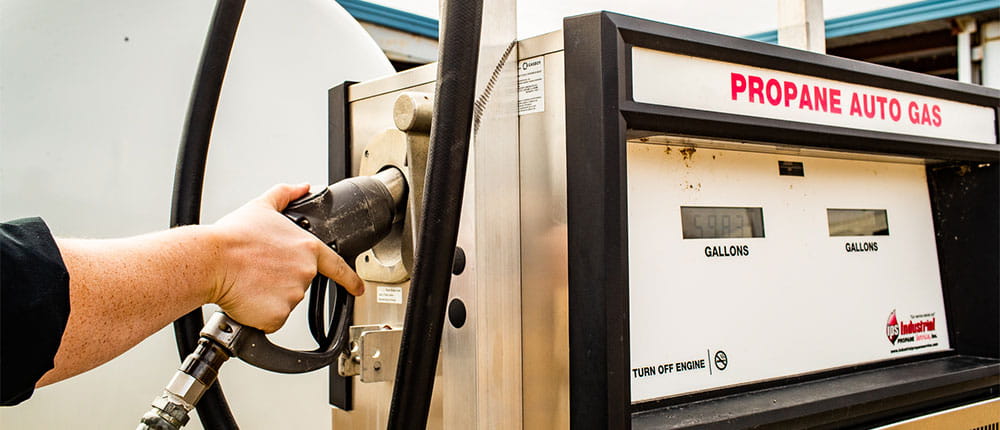Propane may be more commonly used to heat homes and dry corn today than to power fleets, but the fuel holds plenty of potential for future fleet operators as new policies call for a cleaner transportation footprint.
Propane autogas burns cleaner than diesel and gasoline, cutting greenhouse gases by 6% to 21%, depending on the type of vehicle used, and reducing emissions of other harmful gases such as sulfur dioxide and nitrogen oxide (NOx). New propane engine technology already offers solutions today that hold up to the strict EPA emissions standards of 0.02 grams NOx set to go into effect in 2027.
While major engine manufacturers are working to build heavy-duty propane-powered engines, light- and medium-duty fleets from Las Vegas taxis and UPS delivery trucks to school buses and co-ops across the country have already embraced autogas.
“The environmental benefits are only going to be a bigger sell in a future focused on carbon-cutting, but you can’t beat the cost savings,” says Tim Lease, energy division manager for Premier Cooperative in Mt. Horeb, Wis. The cooperative’s energy division runs its fleet of pickup, service and crane trucks on autogas and saves more than $15,000 each year by spending less on fuel and maintenance.
“Burning propane makes the engine much cleaner with less particulate, so you’re able to extend the life of your engine and need less day-to-day maintenance,” says Lease. “That’s something you don’t see right away, but with a high-mileage fleet, you’re going to see the payoff in your bottom line.”
The Iowa County (Wis.) sheriff’s office, a long-time Premier customer, runs 11 squad cars on propane autogas and plans to convert new vehicles as they come on board.
“Our squad cars are running all the time. The savings on oil changes and overall maintenance is a big win,” says Sheriff Michael Peterson, “not to mention the extra fuel capacity it gives us so we don’t have to stop in the middle of a call to refuel.”
As customers get started with autogas, Lease and his team help set up each vehicle with a conversion kit that allows it to run on either gasoline or autogas. Lease also works with customers to build autogas refueling infrastructure where they’ll need it most.
“Propane autogas is a solution that’s slowly changing the game for fleets; it just takes time to realize its full potential,” says Lease. “Once customers get started and track the results for themselves, they’re calling me with the make and model of the next vehicle they want to convert.”




